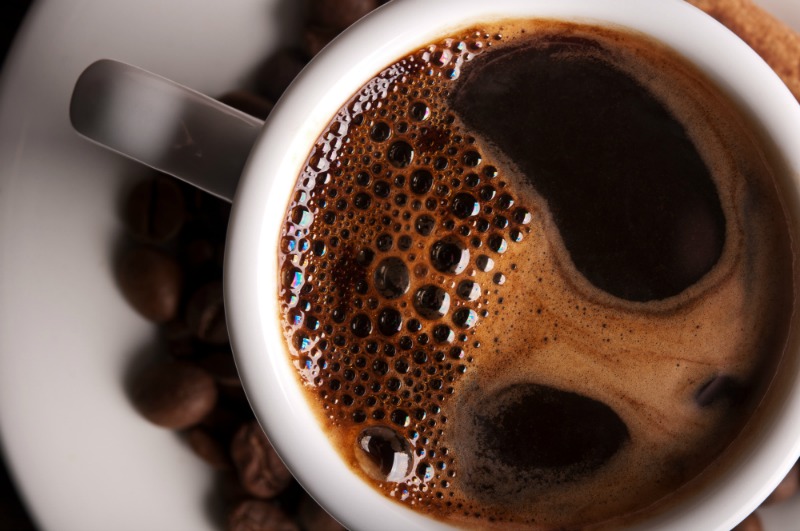
24 Feb Caffeine As Energy: Lots of Hype But Not Much Substance
Much has been written about the potential for caffeine to increase energy. Unfortunately, there is little science to back up the claims. What is clear is that caffeine does not provide any energy itself and does not increase energy stores since is provides no calories. Caffeine consumption only can potentiate the use of stored energy and does not result in energy replacement. Caffeine does increase circulating epinephrine (adrenaline) levels [which can also increase heart rate; see below], but no definitive mechanism for “increased energy” has been established (1). Some have proposed that caffeine may increase fat utilization, possibly increase release of glucose from the liver, make it easier to recruit muscles for exercise and increase oxygen delivery to the tissues (again, through increased heart rate). Regardless any effect of caffeine is due to using endogenous (stored) energy sources and NOT providing new fuel (energy). Thus, “energy” drinks or shots that contain caffeine as the principal active ingredient (and do not contain carbohydrates) do not actually provide energy.
Does caffeine increase exercise performance?
A large number of studies have been conducted to assess the potential benefit of caffeine consumption on athletic performance [see (2) for a comprehensive review]. Most studies have demonstrated a modest effect of caffeine consumption on athletic performance in controlled situations. However, there have been some studies published that were unable to demonstrate a positive effect. In general, it is believed that overall, caffeine consumption has a very modest positive effect on exercise performance.
The Downside of Consuming Caffeine During Exercise
Caffeine has been demonstrated to produce a number of potential unwanted effects, including increased heart rate, increased blood pressure, difficulty sleeping, nervousness, headaches and irregular heart beat, including during exercise performance.(3) Most commonly, these unwanted effects are associated with doses of 200mg and above, but degree of exercise undertaken and age (adolescents and teens are more susceptible) may impact the incidence of unwanted effects of caffeine during exercise.
Challenges to Using Caffeine During Exercise
If an athlete does choose to use caffeine during exercise, there are a number of factors that may impact the end result. Timing of the dose can be a challenge, particularly during endurance events, since blood concentrations reach maximum after about 15-30 minutes and thus, timing of “doses” can be difficult. Also, the increased heart rate and blood pressure from caffeine puts additional stresses on the body, which is already experiencing elevated heart rate from the exercise.
Conclusions
The perceived benefits (“hype”) of caffeine consumption on exercise performance are minimal and may not be worth the risk of the unwanted and potentially dangerous unwanted effects. A better choice is maintaining a good routine for carbohydrate consumption, adequate hydration and replacement of electrolytes. Carbohydrate consumption has been demonstrated to have a positive effect on exercise performance.
1. Davis JK, Green JM. Caffeine and anaerobic performance: ergogenic value and mechanisms of action. Sports Med. 2009;39(10):813-32.
2. Burke LM. Caffeine and sports performance. Appl Physiol Nutr Metab. 2008 Dec;33(6):1319-34.
3. Clauson KA, Shields, K.M., McQueen, C.E., Persad, N. Safety issues associated with commercially available energy drinks. J Am Pharm Assoc. 2008;48:e55-e63.







No Comments